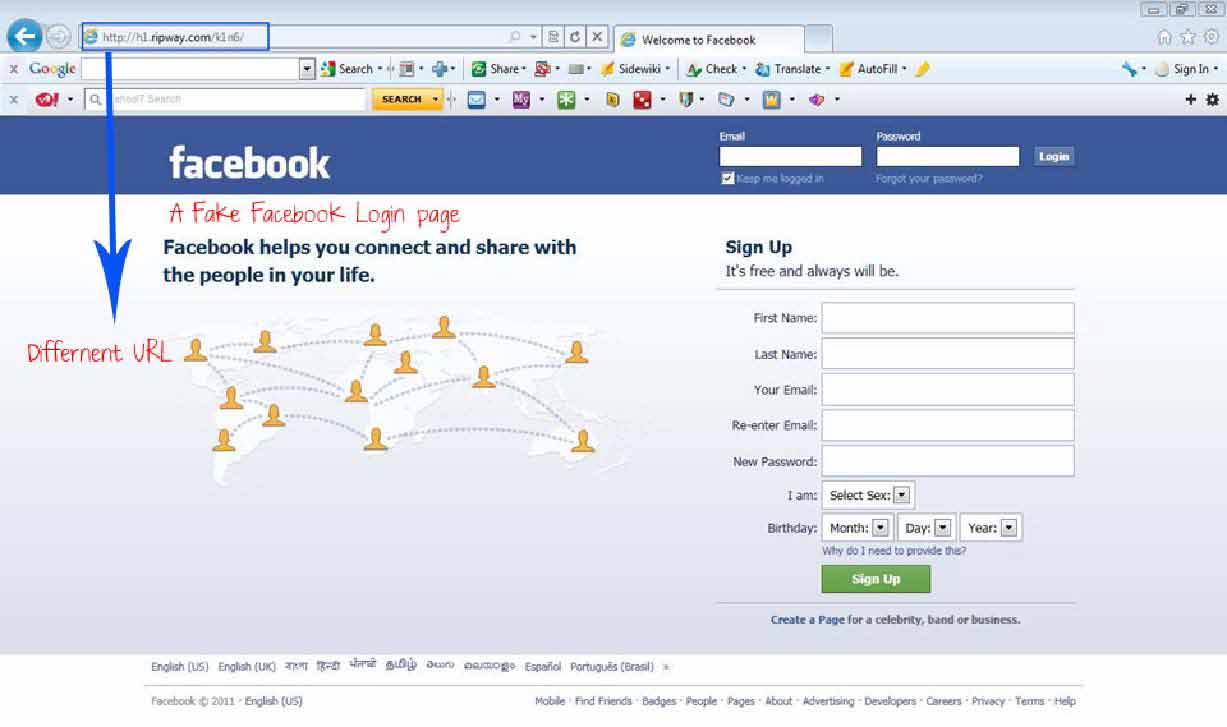Do you use Facebook, Gmail, Twitter, Yahoo! or YouTube? Hackers have stolen the usernames and passwords from approximately 2 million users of these incredibly popular sites.
The hackers used a keylogging virus installed on personal computers, which captured login information for Facebook, Google services like Gmail and YouTube, and Twitter. The keylogger virus then sent that data back to servers in the Netherlands.
Wondering if your password could be at risk? It’s very possible. The passwords were for Facebook, Google products, Yahoo!, Twitter and LinkedIn, as well as for ADP, a prominent data processing firm.
Security experts recommend changing your password every 3 months, regardless, so even if you don’t think your system caught the keylogger virus it’s better to be safe and use this massive security breach as an excuse to change your passwords.
Extent of Hacker Damage is Unknown
The hackers’ operation was busted by a cyber security firm called Trustwave, who then notified the managers of the affected websites. Several of the companies, like Facebook and ADP, have already alerted victims with instructions to reset their passwords.

In addition to the 1.5 million logins for the popular websites mentioned above, the hackers also seem to have stolen over 300,000 email logins, and thousands of FTP and remote desktop credentials.
The largest proportion of the stolen data seems to have been sent to the Netherlands, where the hackers’ server is located. Or, at least, the data seems to have been routed through a proxy server located in the Netherlands. Experts suspect this was a worldwide attack.
And a proxy server is also responsible for the difficulty of locating the exact victims. Trustwave’s John Miller told CNN:
Miller said the team doesn’t yet know how the virus got onto so many personal computers. The hackers set up the keylogging software to rout information through a proxy server, so it’s impossible to track down which computers are infected.
Better safe than sorry is my motto in cases like this – now’s a good time to change your password on your sensitive accounts.
Defend Yourself Against Future Attacks
Trustwave can’t say for sure what the hackers have done with the stolen credentials so far.
Most troubling are the stolen credentials for ADP, which processes payroll. With access to accounts like those, criminals could mess with peoples’ bank accounts and paychecks.
So, aside from changing your password, what can you do?
Here are a few suggestions:
Pick a strong password: Trustwave took a look at the stolen data. And, rather depressingly, found that the most common passwords stolen (from over 2 million!) were the old standbys “password” and “123456.” No hacker needs a Trojan Horse if you make it that easy for them.
Update your antivirus software: It’s difficult for users to find a keylogging program like this one with a simple system search. Antivirus software will be much smarter and more efficient about it.
Download the latest patches for your favorite web browser, Adobe, and Java: this will also help root out Trojan Horse problems.
If you’ve suffered the effects of password hacking, share your experience with us and leave a comment.
See Also
How to Tell If You’ve Been Hacked on Twitter, Facebook and Gmail
Daily Deals Site LivingSocial Hacked, Exposing 50 Million Customers’ Private Info
Identity Theft Alert: Adobe Privacy Breach was 3 Times Worse than Estimated



Leave a Reply